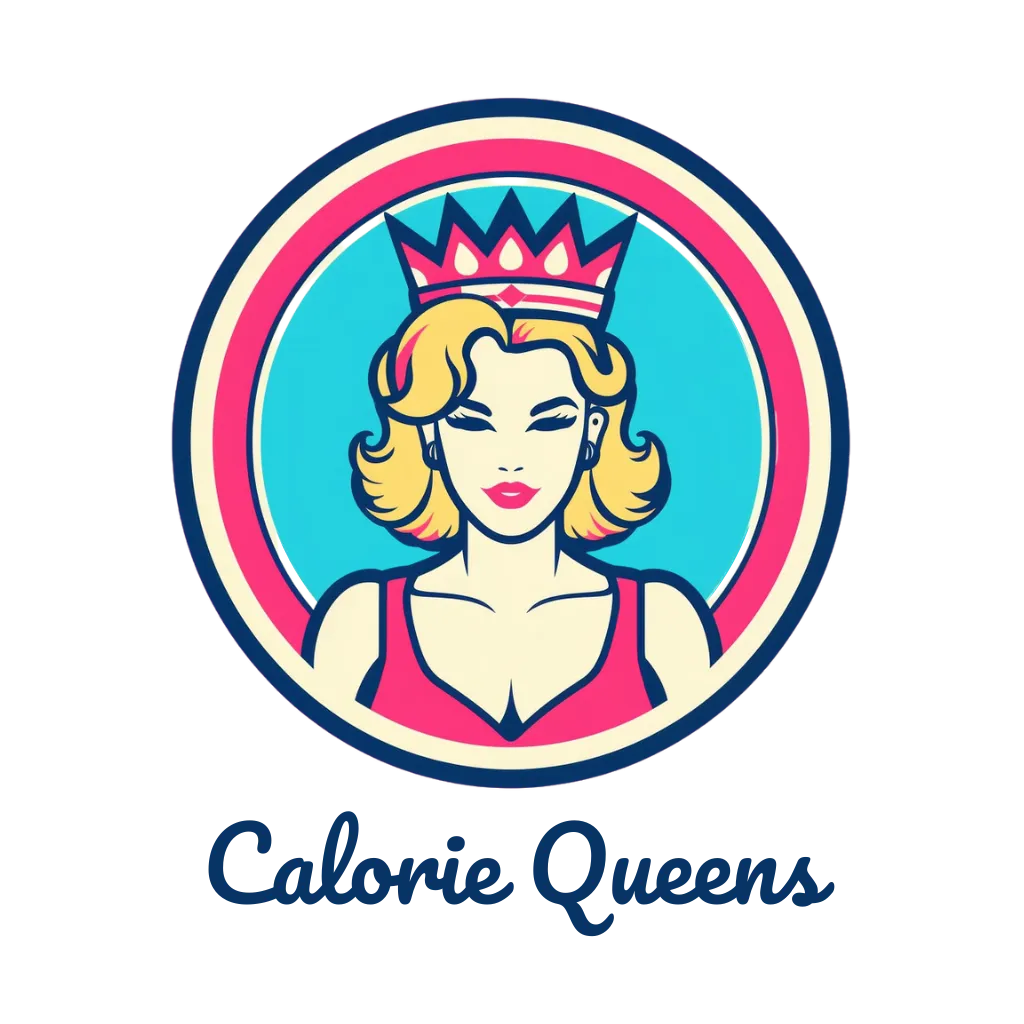Blog
Blog
Unlock Your Weight Loss Success with CalorieQueens
Discover Expert Tips and Motivation for Your Weight Loss Journey

Understanding the Basics of Women's Nutrition: A Comprehensive Guide
Contents
- Introduction
- The Importance of Nutrition for Women
- The Basic Elements of Nutrition
Carbohydrates
Proteins
Fats
Vitamins and Minerals
Fiber
- Hydration and Women’s Health
- Understanding Portion Sizes and Macronutrient Balance
- Nutritional Needs by Life Stage
Adolescence
Adulthood
Pregnancy and Breastfeeding
Menopause
- Overcoming Common Nutritional Challenges
- The Role of Exercise in Women's Health
- Healthy Eating Habits and Tips
- Conclusion
Introduction
Good nutrition is the cornerstone of a healthy lifestyle. It becomes even more critical when we consider the unique physiological stages that women undergo such as menstruation, pregnancy, and menopause. These stages bring about specific nutritional needs that, if not addressed appropriately, can have significant impacts on a woman's health. This comprehensive guide aims to shed light on these aspects, providing an in-depth understanding of the basics of women's nutrition.
The Importance of Nutrition for Women
A balanced diet contributes to overall well-being and helps women navigate through different life stages effectively. Some key benefits include:
Energy Production: Nutritious food provides the energy needed for daily activities.
Weight Management: A well-balanced diet can help maintain a healthy weight.
Bone Health: Adequate calcium and Vitamin D intake is crucial for bone health.
Hormonal Balance: A balanced diet can regulate hormonal imbalances, which often cause various health problems in women.
Prevention of Diseases: A balanced diet can help prevent various health issues, including cardiovascular diseases, osteoporosis, and certain types of cancer.
Healthy Pregnancy: For pregnant women, good nutrition is crucial for the health of both mother and baby.
The Basic Elements of Nutrition
Carbohydrates
Carbohydrates, classified as simple or complex, are the body's main source of energy.
Simple Carbohydrates: These are quickly digested and offer fast energy. Examples include sugar, honey, milk, and fruit. However, overconsumption can lead to weight gain and blood sugar spikes.
Complex Carbohydrates: These provide a slower, more sustained release of energy. They are found in foods like whole grains, legumes, and vegetables.
Proteins
Proteins are the building blocks of the body, crucial for tissue repair and building.
Animal Proteins: Found in meat, fish, eggs, and dairy products. These are complete proteins as they contain all essential amino acids.
Plant Proteins: Found in legumes, grains, and nuts. It's important to consume a variety of plant proteins to ensure you're getting all essential amino acids.
Fats
Fats are essential for hormone production, brain function, and absorption of certain vitamins. They are classified as saturated, unsaturated, and trans fats.
Saturated Fats: Found in meat and dairy products, they can raise cholesterol levels if consumed in excess.
Unsaturated Fats: Found in avocados, nuts, seeds, and olive oil, they can help reduce bad cholesterol levels and are beneficial for heart health.
Trans Fats: These are industrially produced and found in processed foods. They can raise bad cholesterol levels and lower good cholesterol levels, thus they should be avoided.
Vitamins and Minerals
Vitamins and minerals, also known as micronutrients, play a key role in many body functions. Here are a few essential ones for women:
Calcium: Essential for strong bones and teeth. It's found in dairy products, leafy green vegetables, and fortified foods.
Iron: Needed for producing red blood cells and preventing anemia. It's found in meat, seafood, beans, and fortified cereals.
Folate: Crucial for cell growth and metabolism. It's found in leafy green vegetables, beans, and fortified cereals.
Vitamin D: Assists in calcium absorption for bone health. It's found in fatty fish, fortified dairy products, and it's also produced by the body in response to sunlight.
Fiber
Fiber aids in digestion, helps maintain a healthy weight, and can lower the risk of heart disease and diabetes. It's found in whole grains, fruits, vegetables, and legumes.
Hydration and Women’s Health
Water plays an essential role in women's nutrition, aiding in digestion, nutrient absorption, and maintaining skin health. The amount needed can vary based on factors like age, physical activity, and climate.
Understanding Portion Sizes and Macronutrient Balance
Portion control and balancing macronutrients (carbohydrates, proteins, and fats) can greatly impact women's nutritional health. Overeating, even healthy foods, can lead to weight gain and other health problems.
Nutritional Needs by Life Stage
Adolescence
Adolescence is a period of rapid growth and development. Hence, the requirement of nutrients like iron and calcium is higher.
Adulthood
During this stage, a balanced diet helps in weight management and prevention of chronic diseases.
Pregnancy and Breastfeeding
During pregnancy and breastfeeding, the nutritional needs for nutrients like iron, calcium, and folic acid are increased.
Menopause
Post menopause, women's needs for certain nutrients, such as calcium and vitamin D, increase to maintain bone health.
Overcoming Common Nutritional Challenges
Women often face several nutritional challenges. These may include busy schedules, dieting, and weight concerns, or dealing with age-related metabolic changes. Strategies to tackle these challenges include planning meals, avoiding fad diets, and adjusting diet to match metabolic changes.
The Role of Exercise in Women's Health
Regular physical activity can greatly improve women's health, reducing the risk of heart disease, stroke, and osteoporosis. It also assists in weight management and mental health.
Healthy Eating Habits and Tips
To optimize nutrition, women can follow these tips:
Include a variety of fruits and vegetables in your diet.
Opt for whole grains over refined grains.
Include lean proteins and limit the intake of saturated fats.
Limit added sugars and salt.
Stay hydrated and be mindful of portion sizes.
Understanding women's nutrition can empower you to make healthier decisions that align with your unique needs. Remember, everyone's body is different, and what works for one person may not work for another. Always consult a healthcare professional or a registered dietitian before making significant changes to your diet.
Unlock Your Weight Loss Success with CalorieQueens
Discover Expert Tips and Motivation for Your Weight Loss Journey

Understanding the Basics of Women's Nutrition: A Comprehensive Guide
Contents
- Introduction
- The Importance of Nutrition for Women
- The Basic Elements of Nutrition
Carbohydrates
Proteins
Fats
Vitamins and Minerals
Fiber
- Hydration and Women’s Health
- Understanding Portion Sizes and Macronutrient Balance
- Nutritional Needs by Life Stage
Adolescence
Adulthood
Pregnancy and Breastfeeding
Menopause
- Overcoming Common Nutritional Challenges
- The Role of Exercise in Women's Health
- Healthy Eating Habits and Tips
- Conclusion
Introduction
Good nutrition is the cornerstone of a healthy lifestyle. It becomes even more critical when we consider the unique physiological stages that women undergo such as menstruation, pregnancy, and menopause. These stages bring about specific nutritional needs that, if not addressed appropriately, can have significant impacts on a woman's health. This comprehensive guide aims to shed light on these aspects, providing an in-depth understanding of the basics of women's nutrition.
The Importance of Nutrition for Women
A balanced diet contributes to overall well-being and helps women navigate through different life stages effectively. Some key benefits include:
Energy Production: Nutritious food provides the energy needed for daily activities.
Weight Management: A well-balanced diet can help maintain a healthy weight.
Bone Health: Adequate calcium and Vitamin D intake is crucial for bone health.
Hormonal Balance: A balanced diet can regulate hormonal imbalances, which often cause various health problems in women.
Prevention of Diseases: A balanced diet can help prevent various health issues, including cardiovascular diseases, osteoporosis, and certain types of cancer.
Healthy Pregnancy: For pregnant women, good nutrition is crucial for the health of both mother and baby.
The Basic Elements of Nutrition
Carbohydrates
Carbohydrates, classified as simple or complex, are the body's main source of energy.
Simple Carbohydrates: These are quickly digested and offer fast energy. Examples include sugar, honey, milk, and fruit. However, overconsumption can lead to weight gain and blood sugar spikes.
Complex Carbohydrates: These provide a slower, more sustained release of energy. They are found in foods like whole grains, legumes, and vegetables.
Proteins
Proteins are the building blocks of the body, crucial for tissue repair and building.
Animal Proteins: Found in meat, fish, eggs, and dairy products. These are complete proteins as they contain all essential amino acids.
Plant Proteins: Found in legumes, grains, and nuts. It's important to consume a variety of plant proteins to ensure you're getting all essential amino acids.
Fats
Fats are essential for hormone production, brain function, and absorption of certain vitamins. They are classified as saturated, unsaturated, and trans fats.
Saturated Fats: Found in meat and dairy products, they can raise cholesterol levels if consumed in excess.
Unsaturated Fats: Found in avocados, nuts, seeds, and olive oil, they can help reduce bad cholesterol levels and are beneficial for heart health.
Trans Fats: These are industrially produced and found in processed foods. They can raise bad cholesterol levels and lower good cholesterol levels, thus they should be avoided.
Vitamins and Minerals
Vitamins and minerals, also known as micronutrients, play a key role in many body functions. Here are a few essential ones for women:
Calcium: Essential for strong bones and teeth. It's found in dairy products, leafy green vegetables, and fortified foods.
Iron: Needed for producing red blood cells and preventing anemia. It's found in meat, seafood, beans, and fortified cereals.
Folate: Crucial for cell growth and metabolism. It's found in leafy green vegetables, beans, and fortified cereals.
Vitamin D: Assists in calcium absorption for bone health. It's found in fatty fish, fortified dairy products, and it's also produced by the body in response to sunlight.
Fiber
Fiber aids in digestion, helps maintain a healthy weight, and can lower the risk of heart disease and diabetes. It's found in whole grains, fruits, vegetables, and legumes.
Hydration and Women’s Health
Water plays an essential role in women's nutrition, aiding in digestion, nutrient absorption, and maintaining skin health. The amount needed can vary based on factors like age, physical activity, and climate.
Understanding Portion Sizes and Macronutrient Balance
Portion control and balancing macronutrients (carbohydrates, proteins, and fats) can greatly impact women's nutritional health. Overeating, even healthy foods, can lead to weight gain and other health problems.
Nutritional Needs by Life Stage
Adolescence
Adolescence is a period of rapid growth and development. Hence, the requirement of nutrients like iron and calcium is higher.
Adulthood
During this stage, a balanced diet helps in weight management and prevention of chronic diseases.
Pregnancy and Breastfeeding
During pregnancy and breastfeeding, the nutritional needs for nutrients like iron, calcium, and folic acid are increased.
Menopause
Post menopause, women's needs for certain nutrients, such as calcium and vitamin D, increase to maintain bone health.
Overcoming Common Nutritional Challenges
Women often face several nutritional challenges. These may include busy schedules, dieting, and weight concerns, or dealing with age-related metabolic changes. Strategies to tackle these challenges include planning meals, avoiding fad diets, and adjusting diet to match metabolic changes.
The Role of Exercise in Women's Health
Regular physical activity can greatly improve women's health, reducing the risk of heart disease, stroke, and osteoporosis. It also assists in weight management and mental health.
Healthy Eating Habits and Tips
To optimize nutrition, women can follow these tips:
Include a variety of fruits and vegetables in your diet.
Opt for whole grains over refined grains.
Include lean proteins and limit the intake of saturated fats.
Limit added sugars and salt.
Stay hydrated and be mindful of portion sizes.
Understanding women's nutrition can empower you to make healthier decisions that align with your unique needs. Remember, everyone's body is different, and what works for one person may not work for another. Always consult a healthcare professional or a registered dietitian before making significant changes to your diet.
Want to speak with a consultant?
Take the leap!
Our recommended consultants are ready to guide you through your weight loss journey.
With their expert advice, personalized strategies, and relentless support, achieving your goals is just a conversation away.
Let's start making your dreams a reality, today and sign up below......
This is an affiliate link. Please read my DISCLAIMER Mobile Footerfor more info

Menu
Services
Newsletter
Want to speak with a consultant?
Take the leap! Our recommended consultants are ready to guide you through your weight loss journey. With their expert advice, personalized strategies, and relentless support, achieving your goals is just a conversation away. Let's start making your dreams a reality, today and sign up below...
This is an affiliate link. Please read my DISCLAIMER for more info


